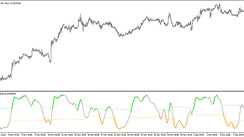The Two Categories of Trading Assets: Long-Term and Short-Term
The trading world is primarily divided into two distinct categories of assets based on their holding periods: long-term and short-term. If an asset is kept for a minimum duration of one year, it is classified as a long-term asset. Conversely, short-term assets encompass those held for less than a year.
Key Distinctions Between Long-Term and Short-Term Trading Assets
One must comprehend the core differences between long-term and short-term trading assets to make informed decisions. These disparities are encapsulated in three key areas: risk, return, and liquidity.
- Risk: In general, long-term assets are seen as less risky when compared to short-term assets. The reason behind this is the price stability of long-term assets, which are less prone to abrupt fluctuations.
- Return: Even though long-term assets are considered safer, they typically yield lower returns than their short-term counterparts. The increased volatility of the market in the short term introduces more opportunities for profit.
- Liquidity: Long-term assets usually possess lesser liquidity than short-term assets, indicating that they might be more challenging to sell swiftly in case of immediate financial needs.
Your choice between long-term and short-term trading assets will significantly shape your trading strategy. As a long-term trader, your target should be undervalued assets with potential long-term growth. Conversely, if you are a short-term trader, you should aim at overvalued assets that are predicted to decrease in value shortly.
Identifying Long-Term and Short-Term Trading Assets
Several factors can assist you in distinguishing between long-term and short-term trading assets. These include the holding period, the asset's volatility, and its liquidity.
Views from Market Experts
A consensus among market experts asserts that there's no universal answer to the question of whether long-term or short-term assets are the better choice. It largely hinges on your individual investment objectives and your risk-bearing capacity. If your preference leans towards long-term growth, then long-term assets could serve your interests better. However, if you're more interested in higher returns despite volatility, then short-term assets might suit you.
Wrapping Up
It's crucial to appreciate the distinct characteristics and associated risks of long-term and short-term trading assets before embarking on your trading journey.





